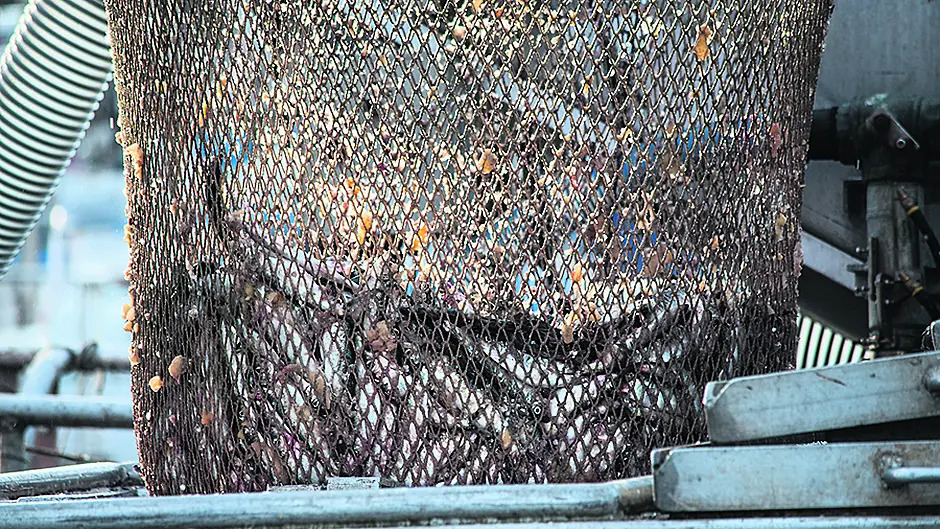The Celtic Sea herring management committee closed the seasonal fishery after 48 hours because the fish being caught were too small prompting fears of potential income and job losses
THE Celtic Sea herring management committee closed the seasonal fishery after 48 hours because the fish being caught were too small prompting fears of potential income and job losses.
John Nolan, the manager of the Castletownbere Fishermen’s Co-operative, confirmed that the 30 boats involved in this type of fishing – including 14 boats from Castletownbere – stopped fishing after they found they were landing one-year old juvenile fish.
However, he confirmed that two boats will go out again in two weeks’ time to see if more mature fish – herring that are between four to seven years old – have arrived in the traditional fishing ground.
He said that four years ago, there were clear signs that the herring fishery was in difficulty and last year’s quota of 10,000 tonnes has fallen, this year, to 5,000 tonnes.
‘If this year’s seasonal fishery – which normally runs from mid-September to mid-December – is lost,’ Mr Nolan said, ‘it will mean a financial loss of about €2m to Irish boats, and it could also mean the loss of 30 jobs of our 120 jobs at our processing facilities.’
Mr Nolan made the point that the appearance of one-year-old fish is, in fact, ‘encouraging.’ But, in order to protect the stock long-term, it may be necessary to close the herring fishing entirely in 2020, in order to give stocks a chance to recover.
Mr Nolan said the decline could not be attributed to over-fishing. He suggested: ‘The huge influx of Blue Fin Tuna, as well as whales and dolphins back into our waters – which, in its own right, is a success story – is literally eating into herring numbers.’
According to Mr Nolan, global warming is also having an impact because traditional species are moving to colder waters.
By way of compensation, Mr Nolan suggested that a proposed 20% increase in the mackerel quota by ICES – the International Council for the Exploration of the Sea – could be used to offset the loss of herring.
He suggested that the minister should set aside 2,700 tonnes out of the 20% mackerel quota increase, and give the 27 boats involved in herring fishing in the Celtic Sea 100 tonnes each.
‘This would go some way towards compensating them for what is a huge loss to our local boats,’ said Mr Nolan.








